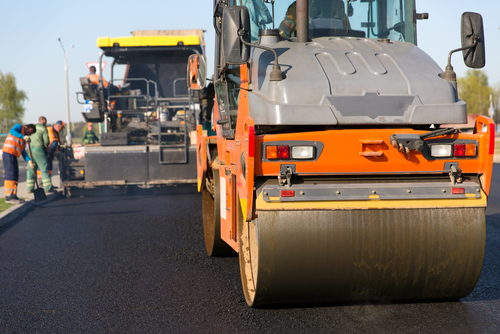
Buoyed by the Trump administration’s proposal to revamp the National Environmental Policy Act (NEPA), a new coalition known as Building a Better America is highlighting infrastructure modernization’s potential for breaking gridlock and quickening infrastructure growth across the country.
“I give the administration credit for tackling what is a real roadblock to continued competitiveness and growth,” said Phil Cox, chairman of Building a Better America, in an interview with Transportation Today. “NEPA is now four decades old and it’s time to modernize it, unleash investment, create jobs and give a boost to the economy. The problem is real. The U.S. ranks near the bottom in permitting among industrialized nations. It is a significant issue and cuts across so many segments of our economy.”
While groups like the U.S. Chamber of Commerce-led Unlock America Coalition push from a nationwide industry and trade association perspective, Building a Better America intends to focus on driving local support for NEPA updates. In this way, the pair will both act to encourage infrastructure modernization and the streamlining of the regulatory structure. To this end, they will focus on education and the belief that the decades-old bureaucratic structure of existing NEPA law is not only out of date, but actively stifling the modern economy.
And in Cox’s words, there is no time like the present. Describing President Donald Trump as a builder, he said it’s important to take advantage of the administration’s posture and revitalize the economy.
NEPA is a 50-year-old law first signed into force by President Richard Nixon in January 1970. For decades it has formed the basis of U.S. environmental policy, governing permitting, federal land management and highway construction. It requires all federal agencies to create environmental assessments and environmental impact statements – the crux of many opponents’ arguments against the law – and, when it was signed, established the President’s Council on Environmental Quality (CEQ).
Earlier this year, the Trump administration announced NEPA was in need of administrative changes, citing its part in delaying projects for years, especially in the case of highways. Building a Better America agrees, saying that by modernizing permitting, the nation will gain greater transparency and predictability among state and local governments looking to build and improve airports, roads, transit and other public assets – an attractive argument at a time when much of the nation is struggling to respond to crumbling infrastructure.
Environmental groups and Democrats are less enthusiastic.
The National Resources Defense Council wrote in a statement that the Trump administration “is proposing changes to NEPA that would dramatically reduce the length and scope of the environmental review process, let polluting industries ‘review’ themselves, limit input from the American public, exempt many infrastructure projects from review altogether, and — perhaps most disturbingly — allow agencies to ignore the fact that certain projects would contribute to climate change.”
Their concerns were backed by others, such as U.S. Sen. Tom Udall (D-NM), who denounced the proposed changes as a new low that would eliminate community and public health input protections for major projects.
Cox dismissed such concerns, arguing that such groups have weaponized NEPA for decades.
Cox has worked elsewhere to advance U.S. economic interests, including serving as co-chair of Trade Works for America, a bipartisan pro-trade group that pushed for the United States-Mexico-Canada Agreement’s approval in Congress. He hopes to achieve similar success with advancing infrastructure modernization through his work with Building a Better America. The organization intends to operate outside Washington D.C., though, activating citizens to make themselves known and provide a chorus of supporting voices.
Building a Better America intends to push American workers, farmers, unions and small business owners to file comments with the CEQ, which are due by March 10. If they are a part of the supply chain, the Building a Better America coalition wants their attention.
“You’ll see less gridlock. You’ll see greater, more efficient, clean energy,” Cox said. “We’re already seeing a very diverse coalition come into support. The North America’s Building Trades Unions came into support just recently. I think you’re going to see folks who have been on the frontlines of this issue – mayors, state economic development officials, members from both parties – recognizing the need for NEPA reform,” he said.
“We can get this done in a way that doesn’t sacrifice the environment, and most importantly, unleashes investment in American infrastructure.”